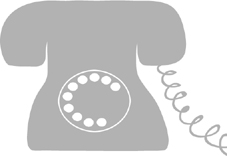

I thought when a marriage was over it caused a kind of explosion. I expected a lot of yelling and door-slamming. Tears and recriminations. But all that really happened was, I stopped bringing friends home. I hung out a lot in front of the TV. Dad started looking for a regular job and an apartment.
Even as the days grew longer, the sunshine warmer, and everyone I looked at appeared to be walking with a lighter step, a sense of things coming to an end hung over us at home. We spoke in sober, hushed tones and acted way too considerate. Divorce was just the next step this family was taking.
I got home from school at the end of March to find Dad in the kitchen. This was usual enough—Mom wasn’t much of a cook. Dad and I love cooking, and I always helped with dinner. But there weren’t any onions frying, and there was no smell of meat browning. No vegetables laid out on the counter. Not a good sign.
“Hi, Dad.”
“ ’Lo, Vinnie.” He was sort of hanging out in front of the refrigerator, whistling a shaky rendition of “Bridge Over Troubled Water.” I got the feeling he was hiding.
My stomach started tying itself up in knots. “You always tell me not to stand in the refrigerator.”
He shut the fridge. He’d been crying. “Dad—”
“It just hit me, I guess. Really hit me. I found a place.”
I swallowed hard. He’d be living someplace else. I couldn’t even imagine what that would be like for him.
He said, “It won’t be so bad. I have roommates. And I got a job.”
Roommates. Well, okay, at least he wouldn’t be living alone. “What kind of job?”
“Taxi driver. I can work late afternoons and in the evenings, leave myself time to do rounds in the morning. A lot of actors drive taxis.”
“I didn’t know you could drive.”
“Sure I can. But who needs to drive in New York?”
In a weird way, I could see this could be a good move for Dad. Not that I was enthusiastic about it. We ate cereal and left the bowls in the sink. I helped Dad pack his stuff and saw him off.
Mom was late getting home, and when she did, she seemed to have lost her footing. As if her new status loomed larger and somewhat too free for her tastes. Her discomfort was something I felt compelled to test. “So what kind of guy have you got in mind, Mom?”
“Don’t start,” she said. She was cleaning up the kitchen, something that was usually not on her radar.
“The professorial type,” I suggested as she put an open box of uncooked rice into the fridge. “No, not enough income. An advertising executive, a little older, maybe, and moving in faster circles—”
“Vinnie, leave me alone.” She wedged a tall cereal box into a cabinet full of pots and pans. “What time is it?” The batteries in the kitchen clock had been dead for days. “Do you have the time?”
My mother took a plane to Haiti. She was back in three days with a light tan, a supply of grass place mats, and a piece of official-looking paper that ended my parents’ marriage.
Mom hooked up with a circle of girlfriends after she got home. Singles and divorcées. All of them compact—in build, in mannerism, in personality. No waste. Mom got stronger, sharper around the edges, humorless, even. It was scary.
Schedules and chores were printed on a chart that hung in the dining room over Dad’s place now that Dad wasn’t present to act as a receptacle for appointments, plans, requests, etceteras. After a couple of failed tests and then a warning note from my guidance counselor, Mom made me hit the books hard.
She was aiming for straight As. I was looking to pass. When third-quarter report cards came out, I stared at the print until it shimmered like water had spilled on the page. I had skated by with Bs and a C except for one real shocker.
Failing gym had never even occurred to me.
I couldn’t seem to recover from one blow before another followed. No one tells you how things really are. Everything coming in waves, one rolling in after the other, and in case you’re thinking that doesn’t sound so bad, keep this in mind: that’s how huge rocks, boulders, become sand on the beach.